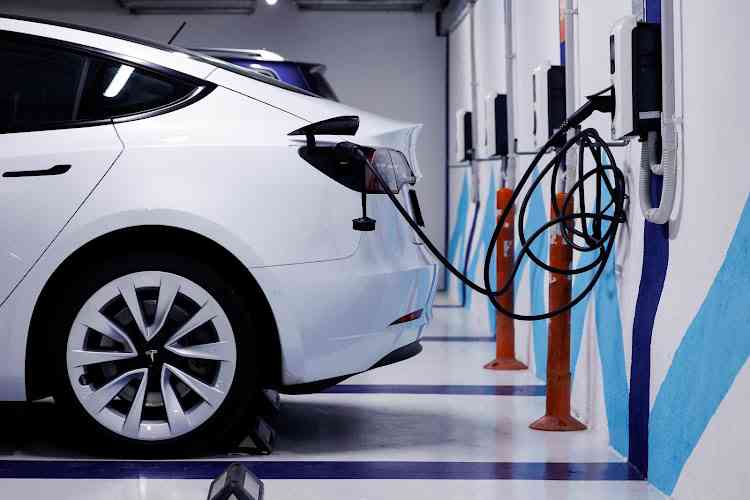
ZIMBABWE, a country endowed with rich mineral resources, is increasingly recognised for its significant lithium deposits, which is a critical component for green energy technologies, particularly electric vehicles (EVs).
As the global demand for sustainable energy solutions accelerates, Zimbabwe has a unique opportunity to leverage its lithium resources not only for mining but also for revitalising its automotive industry.
Once a prominent assembler of motor vehicles in Southern Africa, Zimbabwe can take its place again on the automotive map by inviting industry giants, like Tesla, NIO and BYD, to establish manufacturing facilities.
Lithium is a key ingredient in the production of batteries that power electric vehicles, smartphones and renewable energy storage systems.
With the shift towards cleaner energy solutions, the demand for lithium is expected to soar. Zimbabwe is home to some of the largest lithium deposits globally, particularly in the Bikita and Arcadia regions.
Recognising this potential, the Zimbabwean government has initiated efforts to attract foreign investment in lithium extraction and processing.
However, merely extracting lithium is not enough.
The real game-changer lies in utilising this resource to rebuild the country's automotive sector, which has languished for decades due to economic challenges and lack of investment.
- Mavhunga puts DeMbare into Chibuku quarterfinals
- Bulls to charge into Zimbabwe gold stocks
- Ndiraya concerned as goals dry up
- Letters: How solar power is transforming African farms
Keep Reading
In the 1990s, Zimbabwe was a hub for automotive assembly, with companies like Willowvale Motor Industries assembling vehicles for both local and regional markets.
Over the years, economic instability and a lack of foreign investment led to a decline in this once-thriving industry. Today, the revival of Zimbabwe’s automotive sector is not just a possibility; it is a necessity for economic recovery and growth.
By encouraging companies like Tesla, NIO and BYD to set up production facilities in Zimbabwe, the country can establish a localised supply chain for electric vehicle manufacturing.
This would not only reduce transportation costs but also enhance sustainability by minimising the carbon footprint associated with shipping materials over long distances.
The establishment of automotive manufacturing plants would create thousands of jobs, from assembly line positions to skilled engineering roles. This influx of employment opportunities would help reduce Zimbabwe's unemployment rate and stimulate local economies.
Additionally, foreign companies often invest in training programmes, which can equip the local workforce with valuable skills and expertise.
Zimbabwe's economy has historically relied heavily on agriculture and mining. By diversifying into the automotive sector, the country can reduce its vulnerability to fluctuations in these industries. The automotive industry has the potential to spur growth in related sectors, including parts manufacturing, logistics and services, fostering a more resilient economic landscape.
Inviting established automotive brands would elevate Zimbabwe's profile as an investment destination. It would signal to other international investors that the country is committed to creating a favourable business environment.
This increased visibility could attract additional investments across various sectors, further bolstering economic recovery efforts.
Creating a favourable regulatory framework is crucial for the automotive industry’s revival. This includes offering incentives for foreign investors, streamlining regulatory processes and providing support for research and development.
A clear and attractive policy environment will make Zimbabwe a more appealing destination for automotive firms.
Zimbabwe stands on the brink of a transformative opportunity. With its abundant lithium resources and a historical legacy in automotive assembly, the nation can reinvigorate its economy by attracting global electric vehicle manufacturers.
By inviting companies such as Tesla, NIO, and BYD to establish production facilities, Zimbabwe can harness its natural resources to create jobs, enhance economic resilience, and position itself as a key player in the green energy revolution.
The time for action is now. By capitalising on its lithium potential and leveraging its automotive history, Zimbabwe can pave the way for a sustainable and prosperous future one that aligns with the global shift towards clean energy and innovation.
Embracing this opportunity could not only benefit the economy but also contribute significantly to global efforts in combating climate change.
- Mutisi is the CEO of Hansole Investments (Pvt) Ltd. He is the current chairperson of Zimbabwe Information & Communication Technology, a division of Zimbabwe Institution of Engineers. — +263772 278 161 or [email protected]











